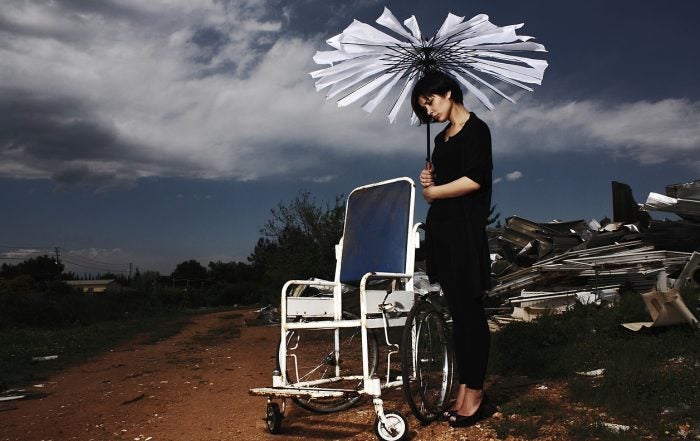Home » Posts tagged 'ucdavis' (Page 21)
Tag Archives: ucdavis
Got a Spare?
By Harrison Manacsa, Biological Sciences, ‘17 Author’s Note: “This started as a case study I wrote on my friend’s chronic kidney disease for UWP104F. She was diagnosed during our freshman year; and I see the impact of her weekly dialysis on her family, diet, and college schedule. Knowing that a kidney transplant will greatly improve […]
Christianson Syndrome
By Madison Dougherty, Biochemistry and Molecular Biology ‘18 Author’s Note: “I wrote this paper as a supplement to a presentation in my genetics class. I believe it is important to inform people about mental disabilities other than the most commonly seen disorders, such as Down Syndrome or autism. This paper serves to educate readers about […]
A New Role for Mosquitoes in Disease-Outbreak Prevention
By Chantele Karim Author’s Note “I became interested in vector-borne diseases in Spring of 2016, when I conducted an independent study on the ethical advancement of genetically modifying technology. I discussed the potential application of CRISPR to mosquitoes, primarily Aedes aegypti, in the effort to combat dengue. Throughout my extensive research, the danger posed by […]
Current discussion surrounding Dr. Canavero’s human head transplant proposal
By Carly Cheung, Microbiology, ’17 Author’s Note: “The controversial topic of a human head transplant caught me by surprise when I read about it in the news. I was curious about the psychological, immunological, and technical complications of this procedure. After researching it, I became more knowledgeable and open-minded towards it.”
Review of Horizontal-flow and vertical-flow constructed wetlands’ efficiency to remove pathogen indicators in tropical area
By Yufei Qian, Environmental Horticulture and Urban Forestry, ‘18 Author’s Note: “As an international student, English is not my first language. I never felt such confidence writing in academic English before taking Professor Matthew Oliver’s UWP 104E class. This class is about writing in science, and the literature review is the basis of many scientific […]
Factors Involved in the Development of Alzheimer’s Disease
By Nicole Strossman, Biochemistry & Molecular Biology, ‘17 Author’s Note: “I chose to write this review for my UWP 104F after reading about potential treatments for Alzheimer’s Disease. As this is a disease that affects such a wide variety of people, and currently has no cure, I wanted to educate myself about the developments regarding […]
The Consequences of Tropical Deforestation
By: Wincy Yu, Biological Sciences, ‘17 Author’s Note: In light of climate change and environmental talks among world leaders, as well as rising media attention for endangered species around the world, I realized that people were concerned about the consequences, but may not have paid attention to the underlying reasons. Inspired by an ecology class […]
The multi-functional protein kinases: ATM and ATR
By Carly Cheung, Microbiology, ‘17 Author’s Note: “The goal of this paper is to portray the multifunctionality of proteins involved in the cell and how interconnected one process is to another, even though two processes appear to be unrelated. I am fascinated by the system of signal transduction in our cells and admire how elaborate […]
Looking Deeper into Life: How a Nobel Prize Winner Advanced Microscopy
By Madison Dougherty, Biochemistry and Molecular Biology ‘18 Author’s Note: “I was encouraged to attend and review Nobel Prize winner Eric Betzig’s lectures on campus, and I am extremely glad that I did. As a Biochemistry and Molecular Biology major, I did not think that I would find microscopy very interesting, but after listening […]
Aggie Transcript Interview—Dr. Daniel Starr
By Lauren Uchiyama, Biochemistry and Molecular Biology, ’17 Author’s Note: “I chose to write this piece because I felt Dr. Dan Starr is unique in that he is equally passionate about teaching and research. As an undergraduate in his BIS 104 cell biology class, I feel he highlights research well by teaching us from an […]

